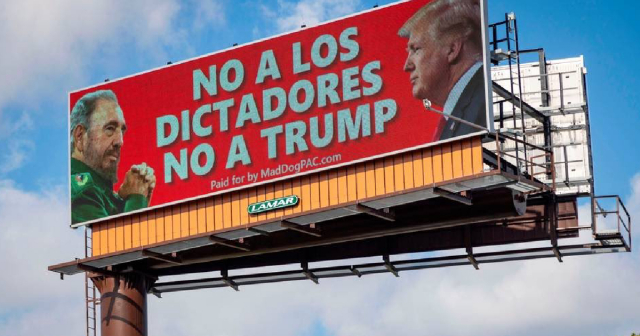This Sunday, June 23, marks the 23rd anniversary of the fainting spell suffered by the dictator Fidel Castro during a speech he was giving in the Havana municipality of El Cotorro.
Anyone would say that I played dead to see the burial they were giving me," joked the leader of the so-called "Cuban revolution" once he recovered from the fainting spell or "brief descent" they claimed he had suffered.
According to what he later recounted, he had spent the whole night preparing his speech, in which he announced a "long and difficult battle" for the release of the five Cubans convicted of espionage in the United States.
"The blame is mine for wanting to collect so much data," Castro pointed out once he was settled in the studios of the Cuban Institute of Radio and Television (ICRT). The chatter of El Cotorro had taken its toll on him, but the air conditioning at ICRT revived his freshness. "I like this place. It's comfortable and cool," he said when he appeared on the Round Table to conclude his campaign.
With 75 years under his belt, Castro had climbed onto the platform determined to launch his new media and propaganda campaign surrounding the "five heroes," which he believed would serve as a unifying element to give a breath of fresh air to his already worn-out regime.
With the help of Hugo Chávez, who had assumed the presidency of Venezuela in February 1999 and had replaced the oil pipeline closed by a grim Vladimir Putin at the beginning of the 21st century, Castro dreamed of starting to recover from the so-called "Special Period" of the 1990s.
After more than two hours of speech in El Cotorro, Castro began to show signs of discomfort, stuttering and gripping the podium tightly, in what immediately appeared to be a fainting spell or a drop in blood pressure.
After a few seconds of astonishment among his followers and security personnel, during which they were seen bewildered and unsure of what to do, his collaborators and escorts rushed up to the stage to assist him.
About 15 minutes later, and after receiving a magical restorative, Castro returned to the platform with euphoric energy and proclaimed with a grin, "I am fine, don't worry."
The episode marked a milestone in the history of the communist leader, who, from then on, lost the mystique of an immortal hero with which the Party's propaganda and indoctrination had enveloped him among the masses.
For the first time, the people saw a mortal, aging, weak Castro live, who asked for "help" in a faint voice.
To this image, others would follow in which he was seen rambling, with a lost look, falling face down in the stands of Santa Clara (a legendary stumble that marked his final decline) and finally succumbing to the revolution of his own intestines, which removed him from power.
According to a 2010 interview, he said that during the fall in Santa Clara, "it influenced that those who take care of you also grow old, lose their faculties, and do not take care of themselves." Soon after, he fell again, in Holguín.
On June 23, 2001, the most famous fainting spell in the history of Cuba occurred. Legend has it that on that day, feces flowed copiously, and an entire town became excited,” remembered the user identified as Liborio in Cuba on Sunday.
What do you think?
COMMENTFiled under:






